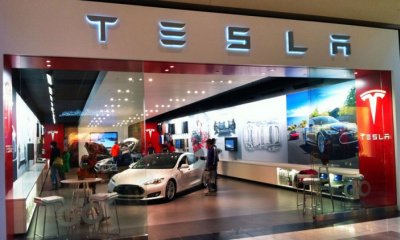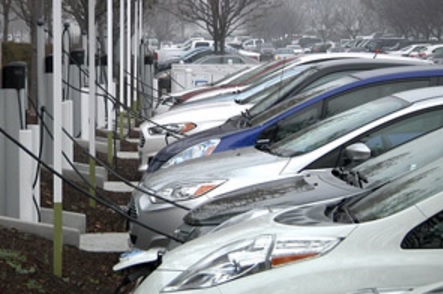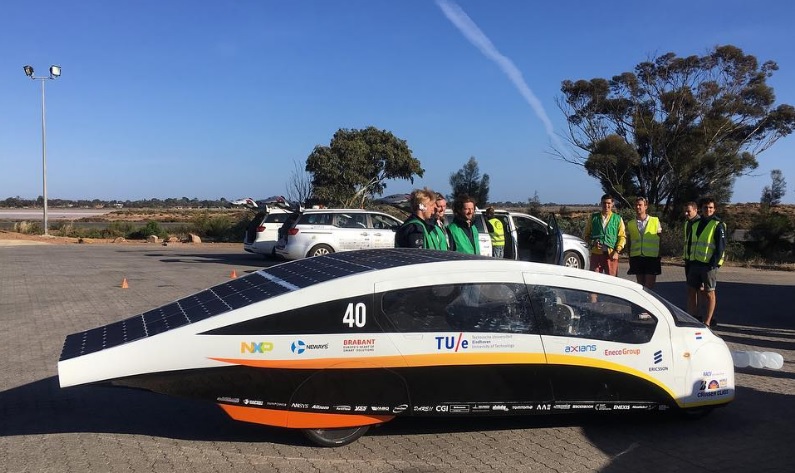Tesla settling SEC fraud suit: Tesla Inc. may see the U.S. Securities and Exchange Commission’s securities fraud lawsuit settled through a joint filing Wednesday to the  federal judge overseeing the case. The settlement means that CEO Elon Musk will be stepping down as chairman for three years, and that two new independent directors will be appointed to the board. Musk will be paying $20 million, and Tesla will pay another $20 million, in fines distributed to harmed investors. Musk’s insulting tweet last week on Thursday, mentioning that the SEC is changing its name to “Shortseller Enrichment Commission.”
federal judge overseeing the case. The settlement means that CEO Elon Musk will be stepping down as chairman for three years, and that two new independent directors will be appointed to the board. Musk will be paying $20 million, and Tesla will pay another $20 million, in fines distributed to harmed investors. Musk’s insulting tweet last week on Thursday, mentioning that the SEC is changing its name to “Shortseller Enrichment Commission.”
While outgoing Twenty-First Century Fox Inc. CEO James Murdoch has been said to likely be appointed the next chairman, Musk tweeted that “This is incorrect.” That comment was directed at a Financial Times report that the son of Fox mogul Rupert Murdoch would be taking one of Musk’s titles. Murdoch joined Tesla’s board last year after years of work with media companies.
EDTA reports spike in plug-in sales: The number of plug-in vehicles sold from January through September 2018 is a 64% increase over the same period last year in the U.S., according to the Electric Drive Transportation Association’s sales dashboard. EDTA reported that there has been 229,874 total plug-in vehicles sales in 2018, with battery electric vehicles (BEVs) at 144,505 and plug-in hybrid electric vehicles (PHEVs) at 85,369 through the end of September. Sales between the two segments were close during the first half of this year, with BEVs taking a leap in the third quarter. During September, BEVs made up 34,046 of the U.S. total and PHEVs made up 10,543 units. EDTA also reported a new look for the dashboard and updates to its research methods.
BYD wins major electric bus deal: BYD will be helping Vancouver’s largest private bus operator, WESTCOAST Sightseeing, to become a 100% clean-energy fleet by 2023. That deal will consist of 90 electric buses of various types, with the Chinese maker being named the exclusive supplier to WESTCOAST. BYD’s North America manufacturing unit, based in Lancaster, Calif., has taken orders for over 600 electric buses. The company has invested more than $250 million and has delivered 270 of the electric buses so far. BYD is also building electric commercial trucks to serve fleets outside the bus sector.

 chargers in operation; 2,183 of them are fast chargers, including Tesla’s Superchargers. Available charging stations are in place at retail stores, shopping malls, movie theaters, and restaurants; and more are showing up at workplace parking lots and city government sites such as libraries. Recent first-time EV buyers are finding what EV owners have experienced in recent years. They charge their EVs at home overnight, and top off for shorter periods while at home our out running errands. Most of the U.S. charging infrastructure is located on the coasts, and fast charging stations differ based on the electric car being driven. EVgo is one of the infrastructure suppliers working at bringing more fast chargers to public charging sites. Most of them have 50-to-60 kW charging capacity for now, and up to 150 kW; with testing being done on chargers that can go up to 350 kW. That ultra-fast charger will be able to give long-range EV about 250 miles of range in about 15 minutes of charging. Most of the changes currently being made at charging stations come from upgrades at these stations, but moving up to high-capacity fast chargers will take more space, construction, and investments in the future. “For the new stations that we’re designing where possible, we’re reserving the power capacity required to serve those higher levels and laying out the stations so that all it will take is a booster in the back of the stations so that you can get up to the higher level,” said Terry O’Day, vice president of product strategy and market development at EVgo.
chargers in operation; 2,183 of them are fast chargers, including Tesla’s Superchargers. Available charging stations are in place at retail stores, shopping malls, movie theaters, and restaurants; and more are showing up at workplace parking lots and city government sites such as libraries. Recent first-time EV buyers are finding what EV owners have experienced in recent years. They charge their EVs at home overnight, and top off for shorter periods while at home our out running errands. Most of the U.S. charging infrastructure is located on the coasts, and fast charging stations differ based on the electric car being driven. EVgo is one of the infrastructure suppliers working at bringing more fast chargers to public charging sites. Most of them have 50-to-60 kW charging capacity for now, and up to 150 kW; with testing being done on chargers that can go up to 350 kW. That ultra-fast charger will be able to give long-range EV about 250 miles of range in about 15 minutes of charging. Most of the changes currently being made at charging stations come from upgrades at these stations, but moving up to high-capacity fast chargers will take more space, construction, and investments in the future. “For the new stations that we’re designing where possible, we’re reserving the power capacity required to serve those higher levels and laying out the stations so that all it will take is a booster in the back of the stations so that you can get up to the higher level,” said Terry O’Day, vice president of product strategy and market development at EVgo. the lead. The race covered 3,022 kilometers (1,880-mile) race from Darwin to Adelaide. Stella was able to gain double the efficiency points of the second-place team. The solar-powered electric car uses a unique Solar Navigator platform from Ericsson’s Connected Urban Transport. Stella was started and created years ago by Solar Team Eindhoven from the Eindhoven (Netherlands) University of Technology, and has been widely recognized and is gaining support. In 2015, Stella won the TechCrunch award for biggest technology achievements during the 8th annual “Crunchies Awards” against an impressive list of contenders.
the lead. The race covered 3,022 kilometers (1,880-mile) race from Darwin to Adelaide. Stella was able to gain double the efficiency points of the second-place team. The solar-powered electric car uses a unique Solar Navigator platform from Ericsson’s Connected Urban Transport. Stella was started and created years ago by Solar Team Eindhoven from the Eindhoven (Netherlands) University of Technology, and has been widely recognized and is gaining support. In 2015, Stella won the TechCrunch award for biggest technology achievements during the 8th annual “Crunchies Awards” against an impressive list of contenders.